Federal parties appeal court order to follow stricter voter data rules
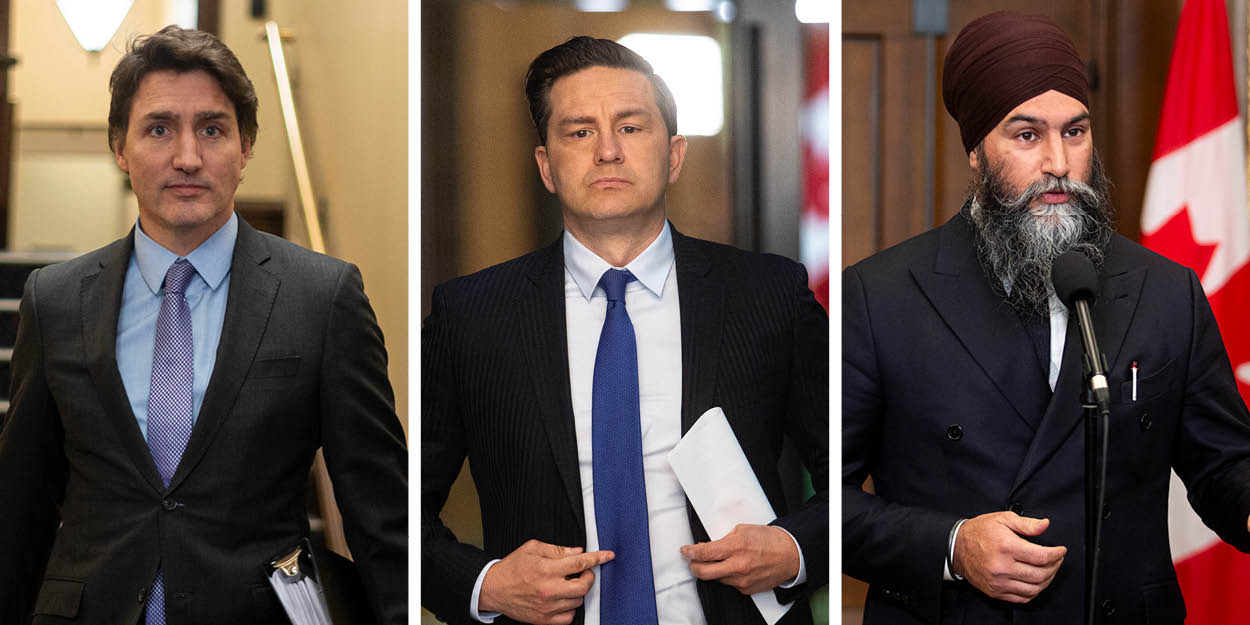
There’s little the federal parties agree on these days, but last week they filed nearly identical notices of appeal in an ongoing legal saga about how they use voters’ data.
Documents obtained by The Hill Times show that the federal Liberals, Conservatives, and New Democratic Party are each appealing a British Columbia court ruling issued last month that said federal political parties are subject to B.C.’s privacy laws. The appeal notices were filed just ahead of the 30-day cut off for appeals, which was June 13.
The ruling in question is a landmark decision that came last month as part of a years-long legal saga. Three private citizens have been fighting to have B.C.’s privacy laws—some of the strictest in the country—applied to federal political parties in the absence of a robust federal privacy framework regulating how national political parties use voters’ data.
The case has raised issues about how political parties should collect and use voters’ personal information in an era of increasingly sophisticated technology that facilities large-scale data collection, and whether they should use that data for practices such as microtargeting voters. The case has also raised constitutional questions about whether the Canadian Parliament should have exclusive authority in regulating federal elections, or if provinces can legislate in this area without frustrating the federal government’s role.
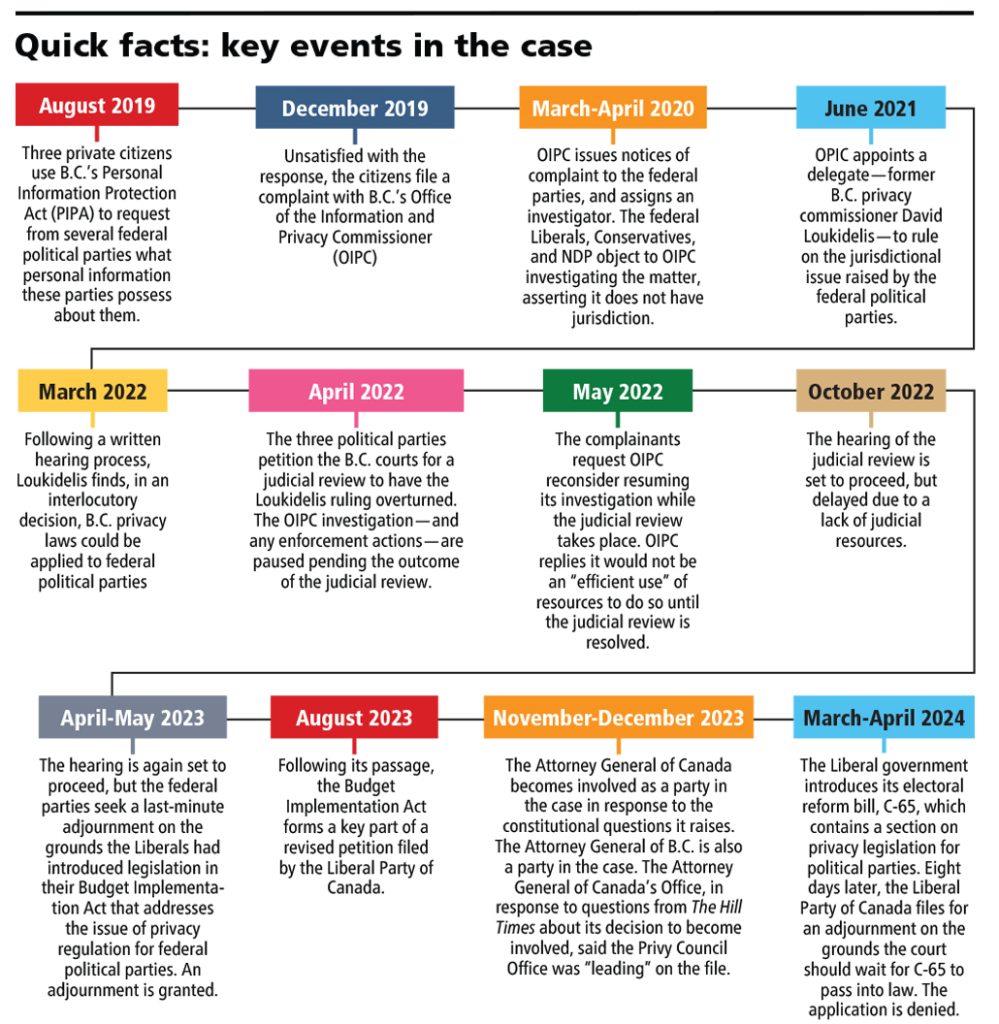
The three private citizens—computer scientist Andrew Clement, as well as two others who have chosen to remain anonymous—used B.C.’s Personal Information Protection Act (PIPA) to make a request to the federal political parties in 2019, inquiring what data the parties possessed about them. Unsatisfied with the response, they used PIPA to file a complaint with B.C.’s Office of the Information and Privacy Commissioner (OIPC). The privacy commissioner opened an investigation but the federal parties objected to its jurisdiction. That set in motion the lengthy legal battle, and led OIPC to decide to put its investigation into abeyance where it has remained for years as the matter plays out.
Last month’s ruling opened up the possibility of that investigation resuming. In light of these appeals, that could now be more than a year away.
If resumed, the investigation could lead to a final report that would shed more light on what kind of personal information federal political parties are collecting about voters, and how they use it when campaigning and fundraising. It could also lead to B.C.’s OIPC issuing orders for federal political parties to change their operational practices in order to be in compliance with PIPA.
Appeal notices filed
The NDP filed a notice of appeal June 10, followed by the Liberals and Conservatives on June 11.
The appeal notice from the Liberal Party—whose lawyers took the lead on making arguments at trial earlier this year—says the parties are seeking to overturn “the whole of the Order of Justice [Gordon] Weatherill,” and for the appeal court to issue a new order stating that PIPA does not apply to federal political parties, and that the B.C. privacy commissioner does not have jurisdiction over them. They are also seeking costs from the complainants.
The NDP notice uses identical wording to the Liberals in regards to the relief sought. The Conservative notice uses slightly different phrasing, but states that same position and requests for relief.
The notices do not provide further detail about the arguments the political parties will make on appeal. At time of the ruling last month, some legal observers familiar with the case told The Hill Times that the federal political parties will likely focus their arguments on the constitutional issues raised in the case about whether the B.C. law interferes with federal jurisdiction to regulate elections.
However, the parties may not have to submit detailed arguments until the fall, and a court date might not come until spring 2025. In that event, a ruling might be issued by late summer in 2025, on the eve of the next scheduled federal election. If that timeline holds—and if whichever party loses at the B.C. Court of Appeal chooses to escalate the matter to the Supreme Court of Canada—the deadline to file such an appeal could fall during the next federal election campaign.
OIPC will delay investigation
An immediate impact of the appeal is that OIPC will further delay its investigation. In a June 14 email, Noel Boivin, a spokesperson for OIPC, said the “investigation will again be put into abeyance as the legal process moves forward.”
At present, the office is not legally required to pause its investigation, but in May 2022 OIPC said it would not be an “efficient use of resources” to continue with the investigation until the judicial review was resolved. Following the ruling last month, OIPC said it was consulting with its legal team to determine if and when that investigation would resume.
Even if OIPC did attempt to investigate before the appeal is heard, the federal political parties could request a stay of the B.C. Supreme Court order to block it from continuing.
Boivin confirmed that OIPC would again be an intervenor at the appeal, saying political parties “must not be exempted” from “fundamental and widely accepted privacy principles,” and that complying with these principles represents an “opportunity to build trust with voters.”
“Our office respects the right of the parties to pursue their right to appeal in this case; however, we would call on them to examine the fundamental principles at issue here and consider what is in the best interest of voters, the parties themselves, and our democracy,” said Boivin.
“The ruling spoke to the vital importance of privacy rights in maintaining trust in our democratic system, especially at a time when technological advances greatly heighten the risk of people’s personal information being misused,” he added. “British Columbians and all Canadians should be able to understand and consent to how their personal information is handled, and to be able to request their own personal information from the organizations that collect it.”
Boivin said the ruling should be upheld for these reasons, and OIPC would “make that position clear during the appeal.”
The Office of the Attorney General of British Columbia—which has been an intervenor in the process arguing that PIPA should apply to the federal parties—confirmed that its office has filed a notice of appearance and intends to participate in the appeal. It did not provide further reaction to the political parties’ decision to appeal, saying it could not comment because the matter is before the courts.
‘We can fight this as long as it takes’: Balsillie
Businessman Jim Balsillie, who has been supporting the complainants through his not-for-profit the Centre for Digital Rights, said he was “disappointed but not surprised” by the political parties’ decision to appeal.
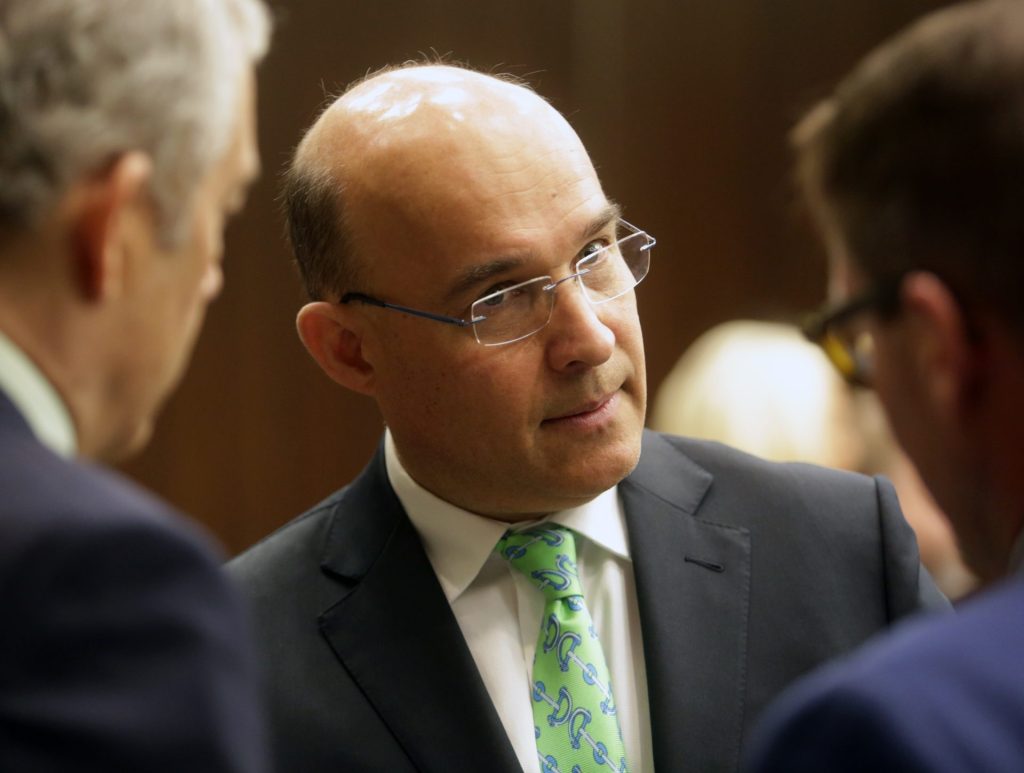
“This long legal battle demonstrates just how addicted [the federal political parties] are to surveillance, microtargeting, and manipulation of voters,” said Balsillie in an email. “But we are not deterred and have more resources than they have collectively, so we can fight this as long as it takes.”
Balsillie said that it is concerning to him the appeal may delay a resolution beyond the next federal election.
The use of voters’ data is one of several issues that has recently provoked discussion about third-party regulation of political parties. Political nominations have also been a hot topic due to candidate complaints about procedural issues going unresolved, and an explosive report that said a lack of regulation makes the candidate nomination processes vulnerable to foreign interference.
Balsillie said the voter data issue is part of a larger theme of political parties wanting to make the rules for themselves.
“It is hypocritical and dangerous for [the federal political parties] to be at the centre of our democracy while designing fundamentally antidemocratic rules for themselves,” said Balsillie.
Political parties won’t explain reason for appeal
The Hill Times reached out to the Liberal Party, Conservative Party, and New Democratic Party about their decisions to appeal.
Liberal Party spokesperson Parker Lund said in an email the party has “a clear and stringent privacy policy.” He did not address why the party had chosen to appeal, or what aspect of the decision the party disagrees with.
The Conservatives and NDP did not reply by deadline.
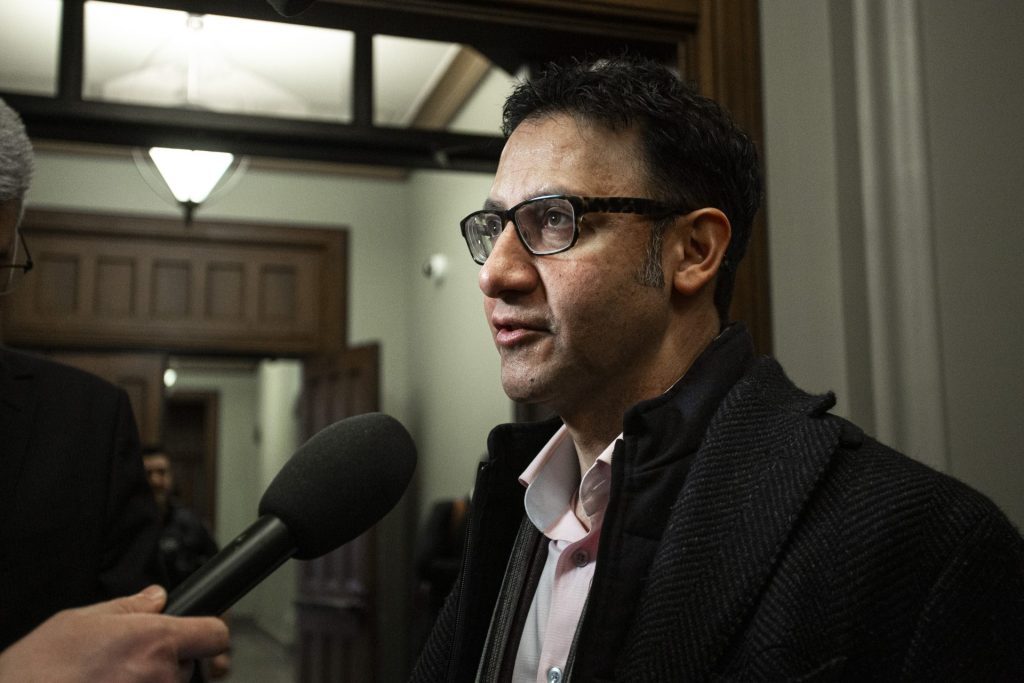
The Hill Times also reached out to the office of Attorney General Arif Virani (Parkdale-High Park, Ont.). The Attorney General of Canada was an intervenor in the case, arguing against the application of PIPA to the federal political parties.
However, the AG’s office has consistently declined to comment on the matter, deferring questions to the Privy Council Office (PCO), which it has said is “leading” on this file. PCO speaks for Dominic LeBlanc (Beauséjour, N.B.) in his role as minister of democratic institutions.
Neither PCO nor Virani’s office has ever answered questions about what steps are being taken to ensure that there is no political influence from the Liberal Party of Canada on what positions the Attorney General of Canada is taking in this case.
Daniel Savoie, a spokesperson for PCO, said in an email, the government “has taken note of the parties’ decision to appeal. We will reserve comment at this time.”
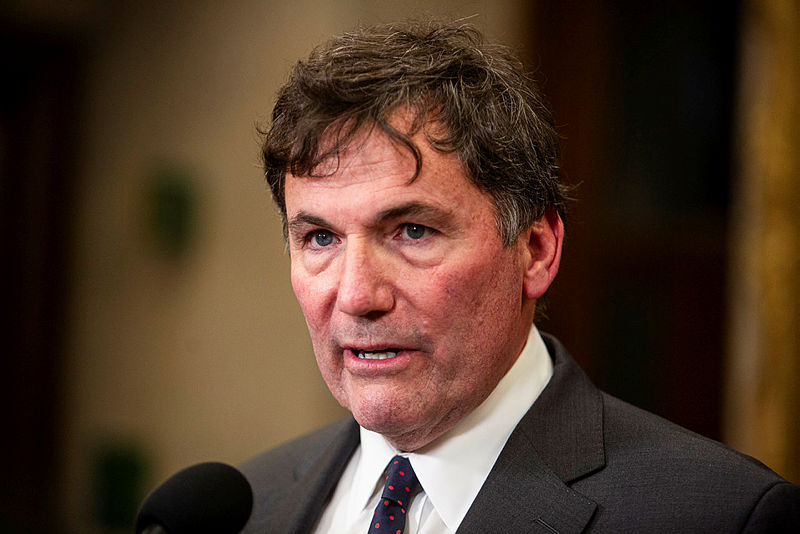
Pressure growing for civil society groups
The decision to extend the legal fight came as a growing number of civil society organizations were mounting a campaign calling on the political parties not to appeal, raising the possibility that some these organizations may seek intervenor status when the case returns to court.

An open letter calling on the federal parties not to appeal was released on June 10, spearheaded by OpenMedia, an advocacy organization focused on internet regulation and accessibility.
The letter said the parties should end their litigation because it is “time-consuming, expensive, and based on flawed assumptions about privacy law and its effects on political campaigning.”
Instead, said the letter, the political parties should “commit to a genuinely effective and enforceable national regime… with meaningful external accountability and oversight.”
The letter had 39 signatories, including organizations such as the Canadian Civil Liberties Association and individuals such as University of Ottawa law professor Michael Geist.
Matt Hatfield, executive director of OpenMedia, said he was “disappointed to see the federal parties acting in naked, shallow self-interest” with their decision to appeal.
Hatfield said it was not in Canadians’ interest to spend additional public money—or the money of party donors—on further litigation. Instead, he said having these privacy protections are in the public interest.
“I think they are weakening democracy by trying to exclude themselves from this kind of regulation, and I think at some point this is going to explode in their face,” he said.
icampbell@hilltimes.com
The Hill Times






 LICENSING
LICENSING PODCAST
PODCAST ALERTS
ALERTS













